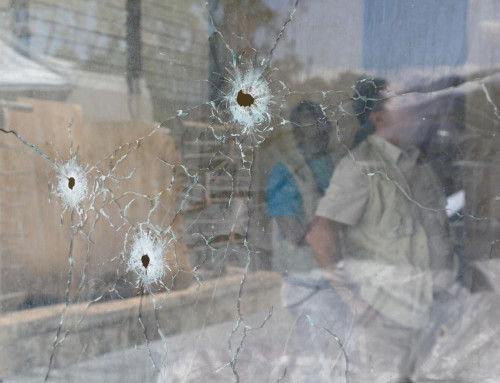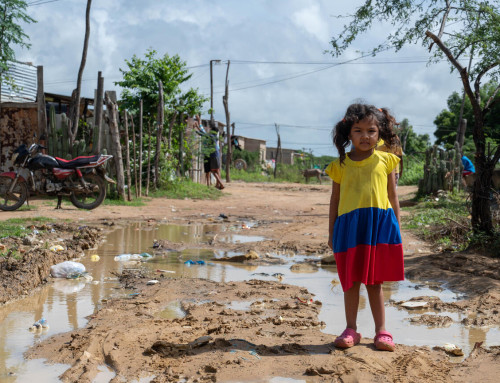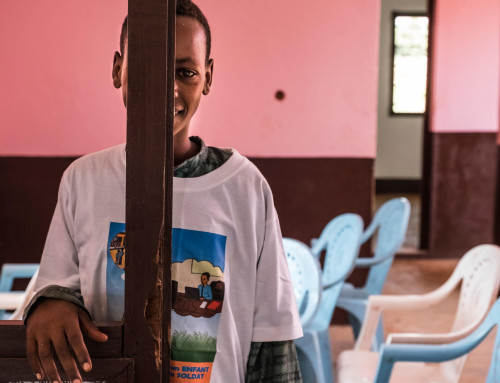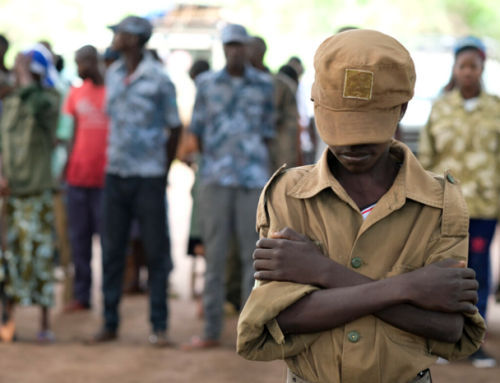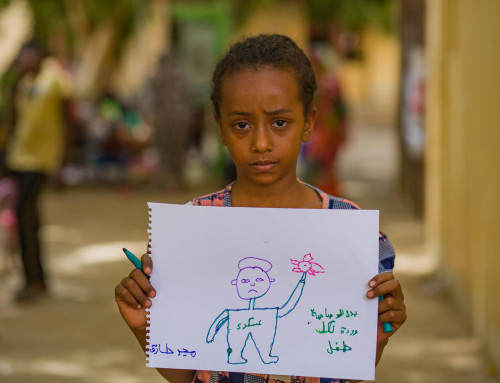Please check against delivery
Statement by Ms. Virginia Gamba, Special Representative of the Secretary-General for Children and Armed Conflict
Event to commemorate the 7th official observance of the International Day for the Elimination of Sexual Violence in Conflict
“Building back better: Supporting survivors of conflict-related sexual violence in the context of pandemic recovery”
Her Excellency Señora María del Carmen Squeff, Permanent Representative of Argentina to the United Nations,
Ms. Pramila Patten Special Representative on Sexual Violence in Conflict,
Excellencies, ladies, and gentlemen,
I am honored to join you today to commemorate the 2021 International Day for the Elimination of Sexual Violence in Conflict and to share reflections on how to address conflict-related sexual violence, especially against children, under COVID-19 response and recovery plans.
As you know, rape and other forms of sexual violence against girls and boys is one of the six grave violations we monitor as requested by the Security Council, along with the killing and maiming of children, their recruitment and use, abduction, attacks on schools and hospitals and denial of humanitarian access. This violation is also a trigger for the inclusion of parties to conflict in the annexes of the Annual report of the Secretary-General on children and armed conflict.
In 2019, our Task Forces on Monitoring and Reporting on the ground verified 735 cases of rape and other forms of sexual violence against children in the 19 situations covered by my agenda that year. About 98 per cent of these violations affected girls. By 2020 these figures had risen by 70% with most victims being girls. But we know that actual figures are likely much higher as this is the most underreported grave violation, mostly due to stigma, fear of reprisals, lack of accountability for perpetrators and of resources for survivors.
Due to the unrelentless growth of this violation against children, my Office is currently undertaking a study to assess the gender dimension of the impact of armed conflict of children, and more specifically on the six grave violations against children, including sexual violence. This analysis is necessary as the Secretary General’s annual report on children and armed conflict covering 2020, which will be published in a few days, and as I indicated, highlights a dramatic increase in verified sexual violence cases in 2020, including since the beginning of the COVID-19 pandemic.
Despite the calls by the Secretary-General, the Security Council, and many others for a global ceasefire in light of the COVID-19 pandemic, many conflicts have intensified, and others have erupted. My Office recently published a study on the Impact of the COVID-19 pandemic on violations against children in situations of armed conflict which shows that the first months of the pandemic challenged the United Nations’ capacity to monitor and verify grave violations, in particular rape and other forms of sexual violence. Beyond the traditional structural, institutional, and sociocultural barriers to reporting this violation, from stigmatization to fear of reprisals, quarantine, and lockdowns measures to contain the pandemic have imposed additional challenges, physically preventing many survivors from reaching out.
Excellencies, ladies, and gentlemen,
The pandemic and related response has had staggering consequences on children, including a spike in conflict-related sexual violence incidents; yet, survivors have been left out of response efforts. It is our collective responsibility that barriers impeding survivors to seek redress for such crimes are overcome, comprehensive services are made available, and that survivors can participate in the development and implementation of post COVID-19 recovery plans.
Despite being impacted by the pandemic our monitoring and reporting teams have continued to verify violations during 2020 and to date. Adapting and finding creative yet effective ways to facilitate reporting is of utmost importance, while always prioritizing survivors’ wishes, confidentiality and safety. The ways in which our monitoring and reporting field staff have overcome the challenges imposed by the pandemic are also being studied as best practice. For instance, the child protection section in one peacekeeping mission successfully systematized data consolidation exercises on sexual violence against children with other Mission’s sections, including through coordination with Women’s Protection Advisors. Training of non-governmental organizations and local civil society organizations was also strengthened to reinforce their capacity to monitor and report sexual violence as they have better access to survivors. Furthermore, the study also showed the importance of collecting data which is age and gender-disaggregated to integrate the specific rights, needs and perspectives of boys and girls into national and regional COVID-19 response and recovery plans.
There are many concerning aspects to the current situation that also were highlighted by our analysis: Shelters, medical, psychosocial, and legal services for survivors of conflict-related sexual violence have regrettably been deprioritized so far in the COVID-19 response. They must be considered as lifesaving and maintained as a high priority in COVID-19 response and recovery plans, and their availability should be widely communicated. I am also concerned about the plight of children born because of rape in conflict, who face distinct, sometimes life-threatening, and enduring, risks and harms and have specific needs that we need to respond to. I am pleased to support efforts, led by my colleague, Special Representative Patten, to compile a special report of the Secretary-General on this subject, as requested by the Security Council.
Lastly, in order to better protect children sexually used and abused by, in and for armed conflict, it is essential that we focus on key areas such as strengthening accountability measures as essential to end cultures of impunity and ultimately prevent the occurrence of sexual violence in conflict. Secondly, the work of monitoring and reporting teams, child protection advisors and women protection advisors, as well as service providers, should be recognized as essential, prioritized and adequately funded. Thirdly, there is urgent necessity to increase human and financial resources to ensure that we access child survivors, hear their stories and secure the support they desperately need.
I strongly hope that this seventh annual commemoration will spark decisive changes and that all children survivors of conflict-related sexual violence, both boys and girls, will be able to receive tailored gender-sensitive and age-appropriate services. The post-pandemic world can only be built back better by including those affected the most. This is an imperative for societies to thrive and for peace to last.
Thank you.


